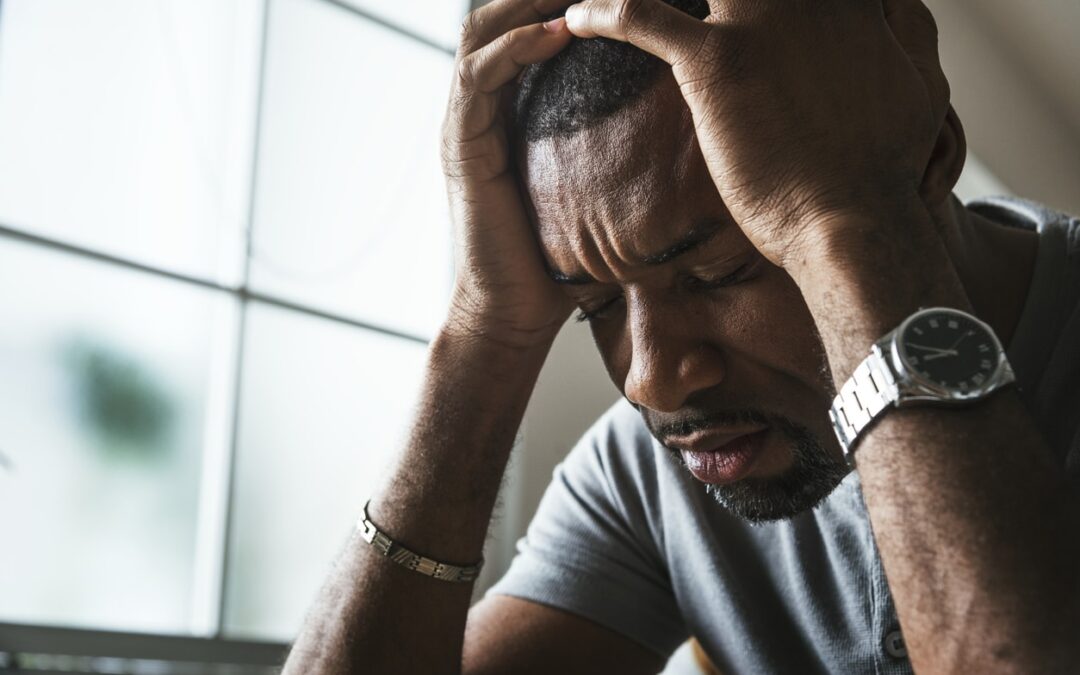Anxiety in Modern Age
It’s vital to acknowledge that everyone feels anxious at times. When it becomes chronic, unmanageable, and disrupts your daily life, it’s likely you’re dealing with a diagnosable disorder. Some examples include:
- Generalized Anxiety
- Social Anxiety
- Phobias
- Panic Disorder
- Post-Traumatic Stress Disorder (PTSD)
You could be experiencing any one of these or perhaps a couple of them in combination. The result is typically a blend of debilitating symptoms like:
- Racing or intrusive thoughts
- Hypervigilance
- Fatigue, shaking, trembling, excessive sweating, palpitations
- Loss of focus and concentration
- Sleep disturbances
- Digestive issues
- Excessive worry
- A sense of impending doom
In the age of smartphones, social media, and the stressors of 2020, more and more of us are feeling overwhelmed with some form of anxiety. Making things trickier is just how widespread this trend has become. The more people feeling anxious, the more we have to rely on self-care. Along those lines, let’s get to the four core strategies mentioned above!
Four Core Strategies for Managing Anxiety and Stress
1. Attention and Mindfulness
The goal here is to find tactics to help center yourself. This is accomplished by aiming your attention beyond the anxious thoughts. Suggestions:
- Breathing exercises
- Meditation
- Visualization techniques
- Mindfulness practices
Also, it is absolutely essential to step away from devices on a regular basis. Schedule in tech breaks and feel your stress levels subside.
2. Expression and Creativity
Anxiety is ever-present but it can be channeled into productive activities. This re-channeling is most effective when it taps into your expressive and creative sides. Suggestions:
- Arts and crafts (either as home projects or just for art’s sake)
- Physical movement (not so much exercise but activities like dance and stretching)
- Altruistic projects (now more than ever, the people around you are in need of creative support)
3. Reflection and Self-Observation
Monitoring your feelings and behaviors will help you identify anxiety triggers. Suggestions:
- Keep a journal (ideal for self-monitoring and will come in handy during therapy)
- Improve your communication skills (Learn how to express your needs)
- Recruit a support system (loved ones can see what you might be missing)
Self-reflection is super important in such a divisive time period. You are being pulled in so many directions. It’s possible to lose sight of what you truly think and feel and value.
4. Healthy Lifestyle Choices
Some suggestions to help reduce the residual feelings of anxiety:
- Nutrition (develop healthy eating habits)
- Exercise (daily activities that you enjoy)
- Sleep (get into a regular routine)
- Relationships (romantic, friends, family)
- Community (despite the fear and stress, do not isolate yourself)
There is NO Shame in Asking For Support
The four core strategies may prove beneficial in managing your issues with anxiousness. But with anxiety, it is often a struggle best addressed with professional guidance. Working with a counselor puts you in the best position to recognize the patterns that have you feeling stuck. Once such behaviors are exposed, it becomes far easier to manage them.
Finally, you and your therapist can work together in the safe space of your sessions to cultivate new methods and approaches. All the while, you can proceed with your diligent self-care efforts via the four core strategies described above. Please read more about anxiety treatment and contact me to set up a free 30-minute consultation soon.

